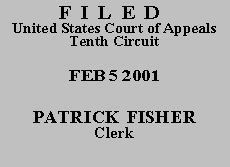

| UNITED STATES OF AMERICA,
Plaintiff-Appellee, v. ALEKSANDER SMEKTALA, Defendant-Appellant. |
|
Aleksander Smektala, a federal prisoner representing himself, appeals from the denial of his petition for habeas relief under 28 U.S.C. § 2255. The district court denied appellant's application for a certificate of appealability. He renews his request in this court.
Appellant is a Polish immigrant who was a trucker. He and his passenger/co-defendant were convicted by a jury of possession with intent to distribute in excess of 1000 kilograms of marijuana and conspiracy, in violation of 21 U.S.C. §§ 841 and 846. According to his direct appeal, he swerved to avoid a collision with another vehicle, and a large load of onions and marijuana spilled out of his trailer. United States v. Kulik, Nos. 97-7092, 97-7094, 1998 WL 436574, at **1 (10th Cir. July 30, 1998) (order and judgment). Appellant was sentenced to concurrent terms of 188 months. We note that an interpreter was provided for each co-defendant at trial. R., Vol. I, Doc. 8, at 6.
In his § 2255 petition, appellant claims that he did not understand that he had the right to testify at his trial even if his attorney advised against it. In support of his argument, appellant attached three exhibits to his brief on appeal. In the first exhibit, his own affidavit, he swears that the story he would have told is that he was hauling onions, and had made an agreement to smuggle illegal aliens in his truck. Appellant's Br., Ex. A at 2-3. He does not mention the marijuana at all, not even to claim he knew nothing about it.
The second exhibit is a letter solicited by the attorney who filed appellant's § 2255 petition in district court from appellant's trial counsel, Jim McClure. In the letter, Mr. McClure says that there were some communication problems between them during their pretrial conversations due to the language barrier. Id., Ex. B at 1. Mr. McClure states that he thought all the misunderstandings were resolved, but at the time of writing was no longer sure about that. Id. He concludes that appellant decided not to testify, but may have thought he was precluded from testifying. Id. at 2.
The third exhibit is Mr. McClure's answers to interrogatories, in which he states unequivocally that he explained to appellant his right to testify, and that the decision that appellant would not testify was mutual and part of Mr. McClure's trial strategy. Id., Ex. C at 1-2.
A claim of ineffective assistance of counsel is governed by the two-part standard set out in Strickland v. Washington, 466 U.S. 668 (1984). First, appellant must show that his counsel's performance "fell below an objective standard of reasonableness." Id. at 688. Second, appellant must show that "there is a reasonable probability that, but for counsel's unprofessional errors, the result of the proceeding would have been different." Id. at 694.
To the extent appellant is asserting that his former counsel was ineffective for not calling him to testify, neither prong of Strickland is met. It was not objectively unreasonable for counsel not to call appellant because his proposed testimony would not negate the drug charges and it would raise possible new charges. The first of these two bases also reflects upon the second prong. To the extent appellant is claiming ineffectiveness for not effectively communicating his right to testify, the first prong of Strickland is not satisfied because counsel's letter, his interrogatory answers, and his obvious awareness of the presence of interpreters at trial show that his performance was objectively reasonable. We therefore do not reach the second prong.
Appellant's application for a certificate of appealability is denied. The appeal is DISMISSED.
Entered for the Court
Circuit Judge
*. This order and judgment is not binding precedent, except under the doctrines of law of the case, res judicata, and collateral estoppel. The court generally disfavors the citation of orders and judgments; nevertheless, an order and judgment may be cited under the terms and conditions of 10th Cir. R. 36.3.